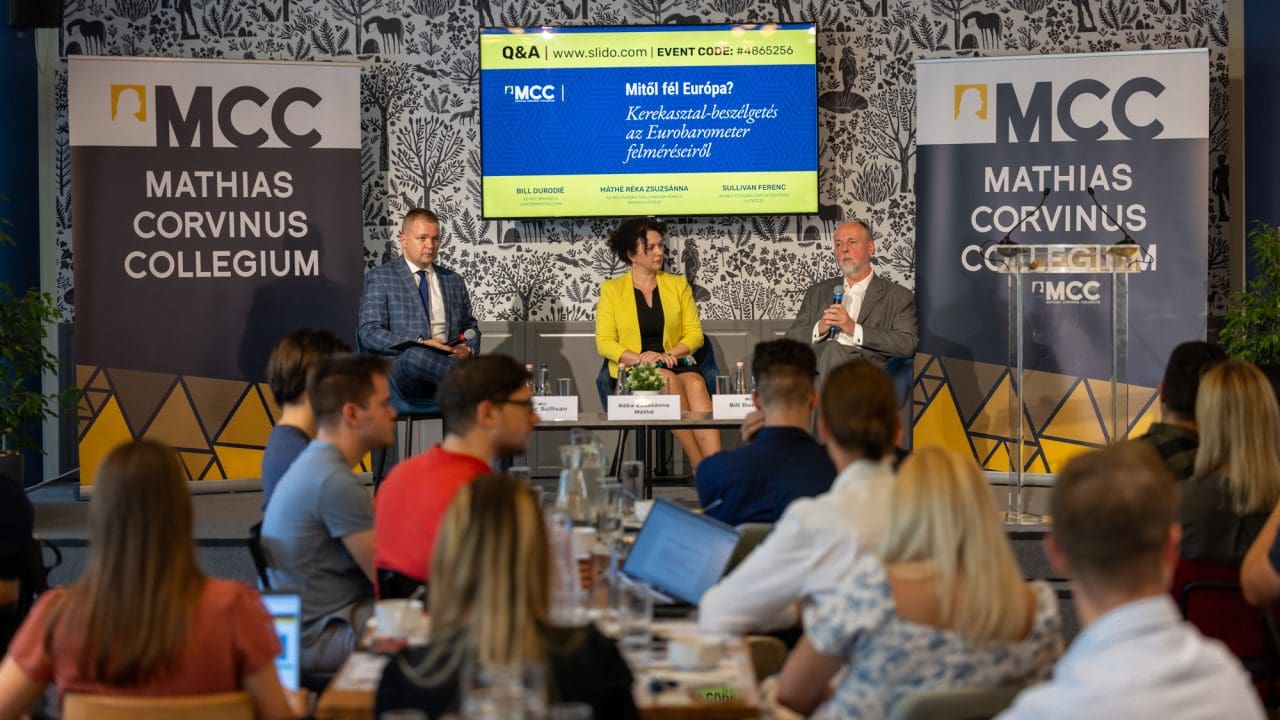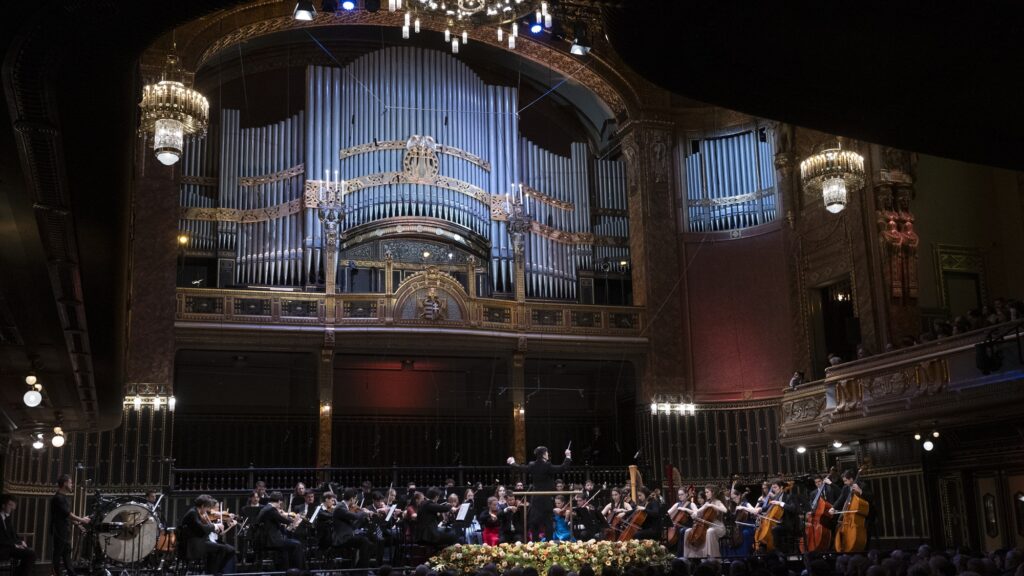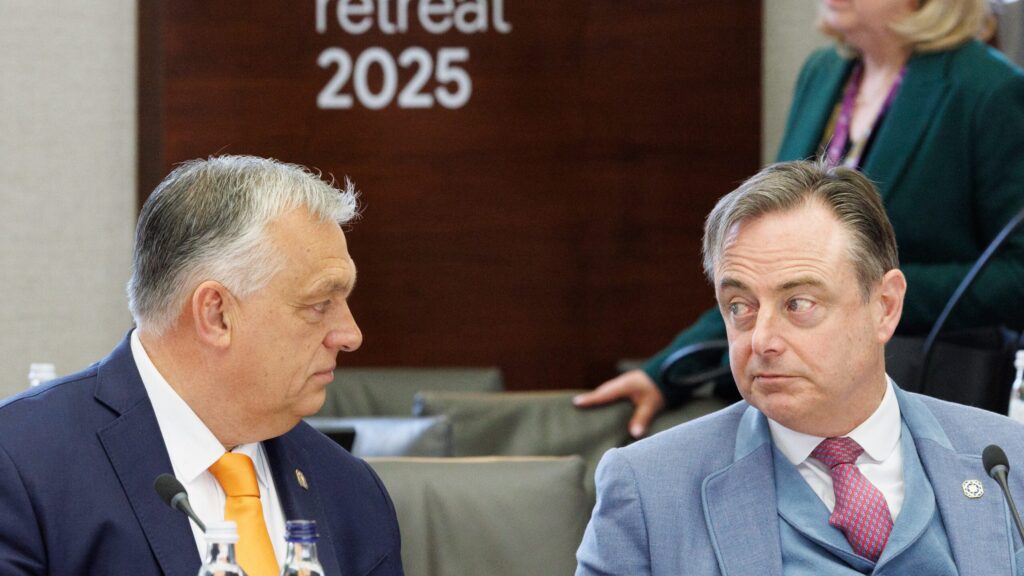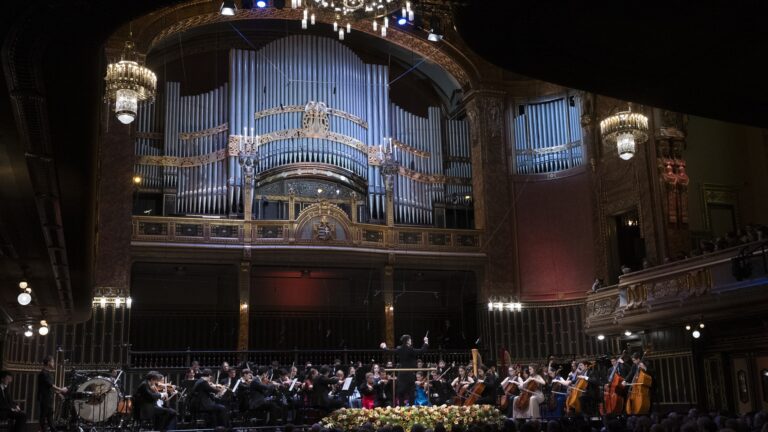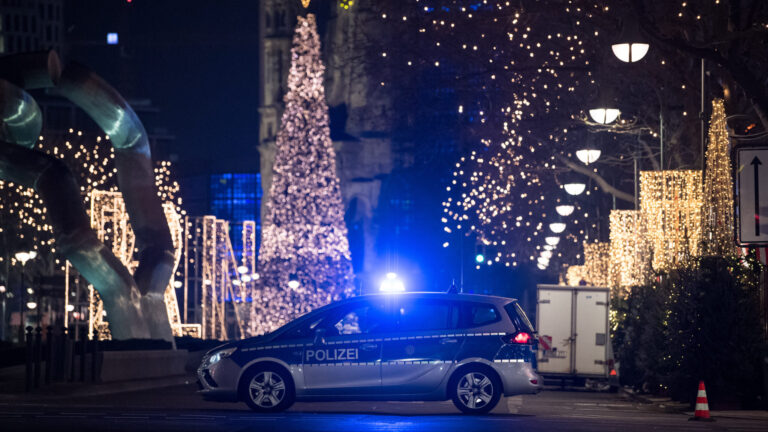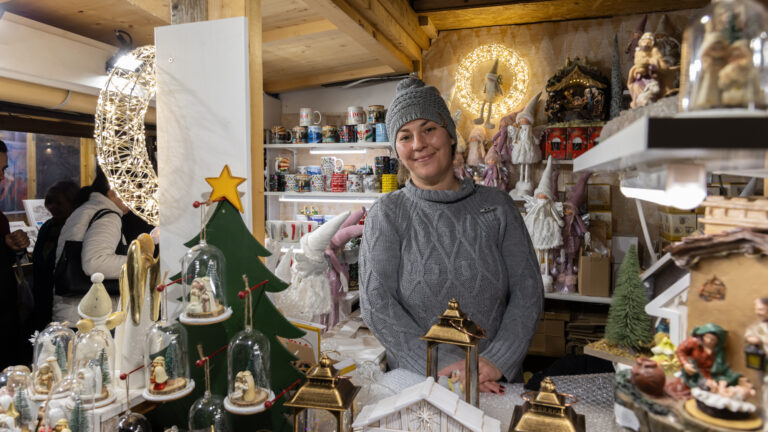At a recent event titled What Does Europe Fear? – A Roundtable Discussion on Eurobarometer Surveys, experts delved into the complex relationship between fear and politics as reflected in opinion polls in Europe. The event MCC’s Youth Research Institute featured Bill Durodié, a visiting professor at MCC Brussels, Chair of Risk and Security in International Relations at the University of Bath. As Hungarian Conservative also reported, Professor Durodié is the author of a critical analysis of Eurobarometer surveys, a paper that served as the basis of the discussion. His interlocutor was Dr Réka Zsuzsánna Máthé, PhD, a research methodology professor at Europe Strategy Research Institute of the University of Public Service. The two scholars explored the role of fear in shaping public opinion, the impact of media and technology, and how European elites construct public opinion. The moderator of the 22 September event was Youth Research Institute researcher Ferenc Sullivan.
Professor Durodié began by recounting his experience in researching topics such as the Iraq war and the false claims about the existence of weapons of mass destruction. He emphasized that the interpretation of information often matters more than the information itself. In his words, even the statement ‘I see no evidence of weapons of mass destruction’ could be interpreted differently based on one’s agenda. Similarly, he argued, EU officials often find what they want to hear in research, highlighting the malleability of public opinion. He stressed that
much of what passes for public opinion is fleeting moods, as individuals tend to conform to mainstream ideas.
Réka Zsuzsánna Máthé underscored that human beings are inherently tribal creatures, seeking belonging and security. However, the sense of community and security has dwindled in modern times, leading to fragmented societies and general mistrust.
The panellists agreed that today’s world is marked by numerous threats, including diseases, war, terrorism, and climate change, which has led to the rise of a certain culture of fear. However, media and technology is a tool that can amplify or mitigating this culture of fear. But Durodié argued that blaming the media for fear is simplistic. He attributed the growing influence of the media to the collapse of traditional political ideologies, which in turn has led to political disengagement. Reflecting on tendencies to curb freedoms with the excuse of the need to address security concerns,
he cautioned against sacrificing freedom for security, emphasizing that true security arises from freedom.
Réka Zsuzsánna Máthé highlighted the media’s tendency to focus on negative news, even when the risk of an event that is disproportionately highlighted happening again is statistically low. She argued that the media responds to innate and irrational fears, altering our perception of reality.
The panellists questioned the authenticity of Eurobarometer surveys, suggesting that they often serve particular agendas. Durodié noted that the public’s concerns have remained relatively consistent over the past 50 years, yet EU elites project different priorities such as climate change and terrorism. Dr Máthé added that manipulation of opinion polls and statistics is not unique to the EU, and agendas can influence the questions asked. She noted that the Commission tends to exclude questions it does not want to hear answers to.
In concluding remarks, the panellists discussed tools researchers can employ to genuinely understand public concerns.
Durodié emphasized the importance of spending time with people to build trust and gather authentic insights.
He also advocated for asking different, less conventional questions. Dr Máté highlighted the communication challenges individuals face when having to discuss their beliefs and the need to address this issue by scholars.
The event shed light on the how propaganda messages are being disguised as public opinion by European mainstream elites, and the intricate relationship between fear and politics in Europe. The panellists highlighted the malleability of public opinion, the role of media in amplifying fear, and the manipulation of surveys. As Europe grapples with various challenges, understanding the dynamics of fear and its impact on political decision-making becomes increasingly crucial. Researchers and policymakers alike must navigate these complexities to engage with the public effectively and address their genuine concerns.
Read more:

